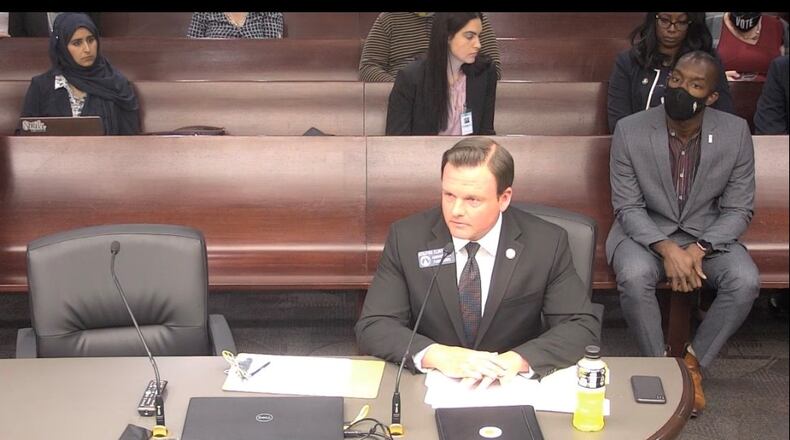The Georgia Senate voted Wednesday to remove party affiliation from the names of Gwinnett County school board candidates on voter ballots.
The Gwinnett Board of Education was majority white and Republican until last year, after voters put three Black Democrats in control. Republicans began calling for nonpartisan elections soon after.
The Republican-led Senate voted along party lines to approve Senate Bill 369 over the objections of Democrats. Should the bill become law, elections would be held earlier in the year when fewer voters go to the polls.
About 40% of Georgia’s 180 school districts hold partisan elections. The rest, using a law that allows for local control, don’t let candidates identify with a political party.
Sen. Clint Dixon, R-Buford, is the lead sponsor of SB 369.
Dixon held hearings last year about a proposal to make all 180 school districts in the state hold nonpartisan elections. But the bill that emerged this year was directed only at Gwinnett.
Democrats objected, saying Republicans had subverted the process. Normally, the fate of bills that affect one county is determined by that county’s elected officials.
“SB 369 did not pass through the delegation, nor has it been widely supported by the residents of Gwinnett,” said Sen. Michelle Au, D-Johns Creek. She cited survey results and a vote on a primary ballot question that indicated most residents didn’t want to make the board nonpartisan.
Gwinnett was a Republican stronghold for years, but began moving toward Democrats in 2016, voting for Hillary Clinton in her presidential bid and then for Stacey Abrams’ 2018 campaign for governor. The loss of Republican control over the school board led to the ouster last year of longtime Superintendent J. Alvin Wilbanks almost a year before his contract was to end.
Gwinnett County school board chair Tarece Johnson spoke against SB 369 in a committee hearing last week. She said she was speaking for herself rather than for the board when she questioned the timing of the legislation after her party’s victories. She said SB 369 would result in lower voter turnout since nonpartisan elections are held months before general elections, a point that was echoed by Democratic senators during their debate Wednesday.
Parents at last week’s hearing had testified that the district was dropping in quality after the change in party control and the departure of Wilbanks.
Dixon brought that message to the full Senate Wednesday.
“Less than a decade ago, our school system was the No. 1 school system in the state. Today we sit at 66,” he told his fellow senators. He didn’t cite his source but he described it as an alarming situation caused by partisan politics.
“We’re falling off a cliff. This is a major issue in Gwinnett County that needs to be handled now,” he said.
Democrats tried and failed to get an amendment added that would have forced all school boards in Georgia, including those controlled by Republicans, to go nonpartisan as well.
“If we’re going to go after one county, let’s make this for all counties,” said Sen. Nikki Merritt, D-Grayson.
The bill now goes to the state House, where it could stall or pass with or without amendments.
About the Author
Keep Reading
The Latest
Featured

